SEO
SEO Trends You Can’t Ignore In 2024
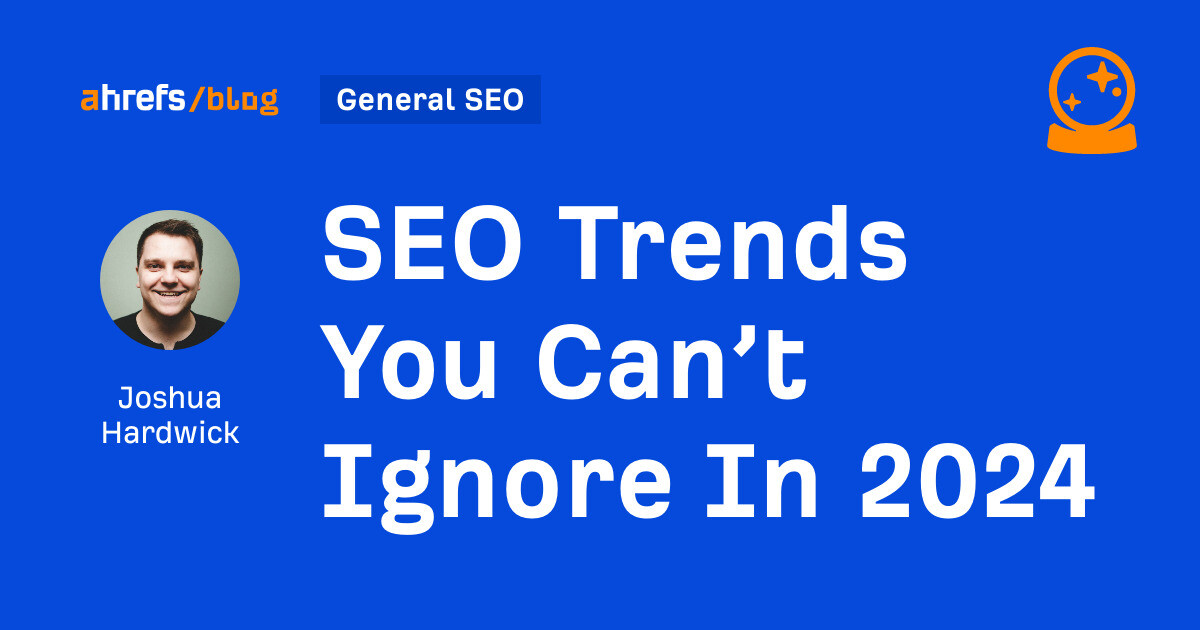
Most SEO trends fade quickly. But some of them stick and deserve your attention.
Let’s explore what those are and how to take advantage of them.
If you give ChatGPT a title and ask it to write a blog post, it will—in seconds.
This is super impressive, but there are a couple of issues:
- Everyone else using ChatGPT is creating the same content. It’s the same for users of other GPT-powered AI writing tools, too—which is basically all of them.
- The content is extremely dull. Sure, you can ask ChatGPT to “make it more entertaining,” but it usually overcompensates and hands back a cringe version of the same boring content.
In the words of Gael Breton:
How to take advantage of this SEO trend
Don’t use AI to write entire articles. They’ll be boring as heck. Instead, use it as a creative sparring partner to help you write better content and automate monotonous tasks.
For example, you can ask ChatGPT To write an outline from a working title and a list of keywords (which you can pull from Ahrefs)—and it does a pretty decent job.
Prompt:
Create an outline for a post entitled “[working title]” based on these keywords: [list]
Result:
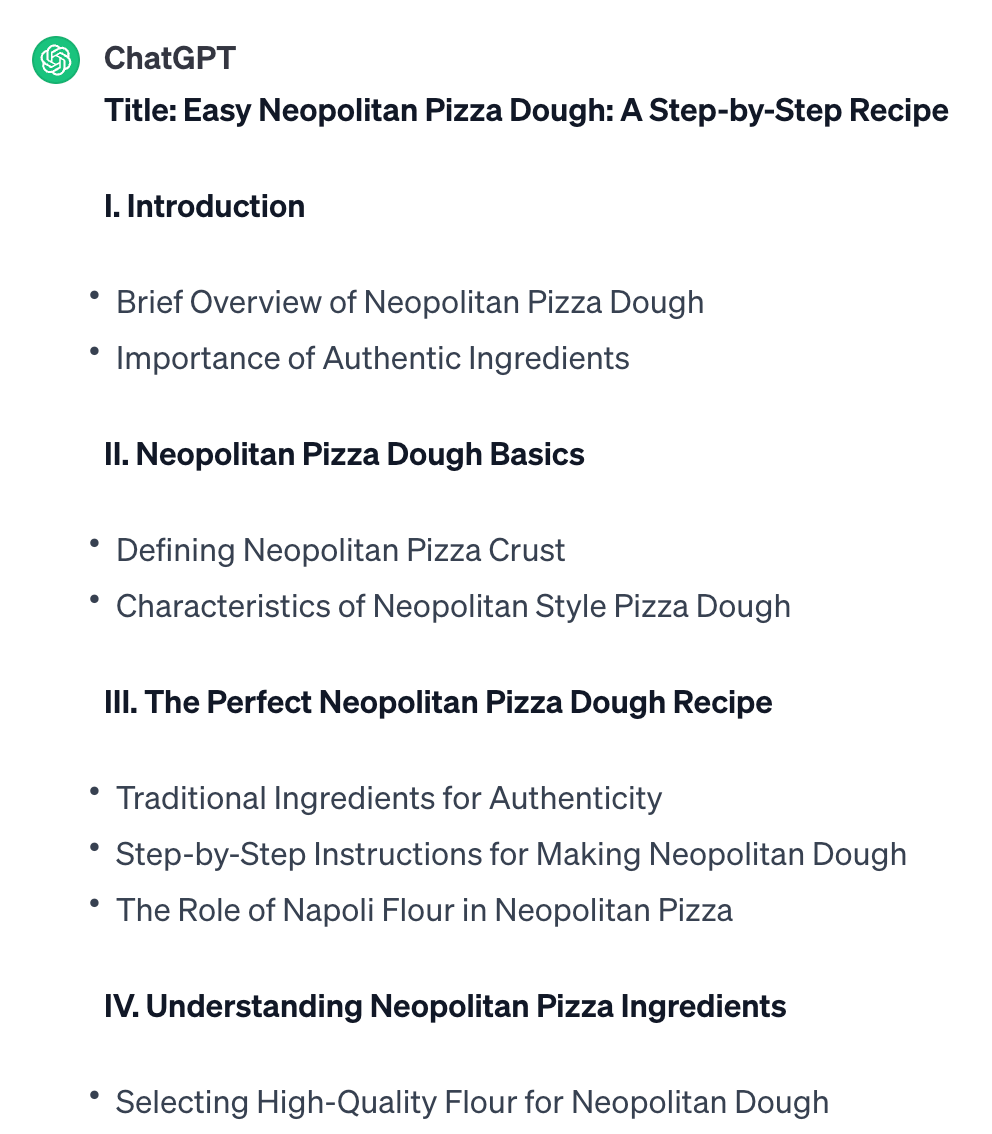

When you’ve written your draft, you can ask to polish it in seconds by asking ChatGPT to proofread it.
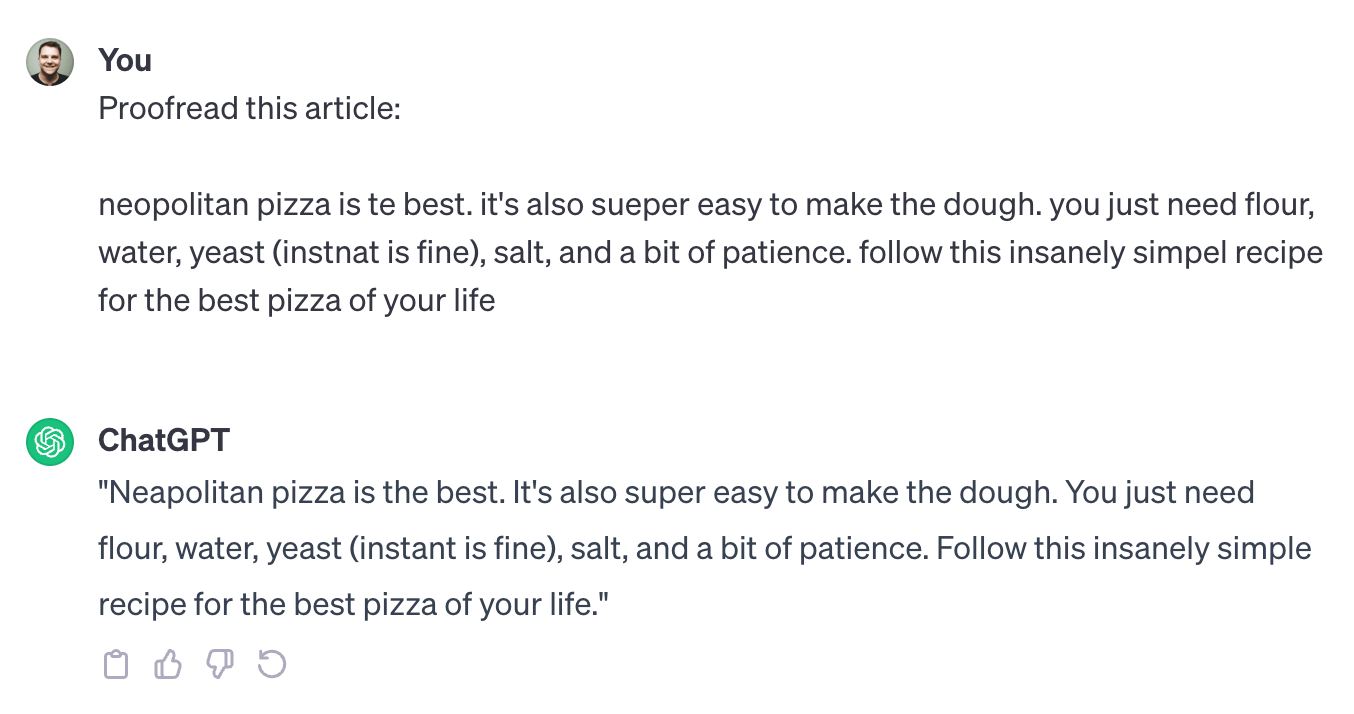

Then you can automate the boring stuff, like creating more enticing title tags…
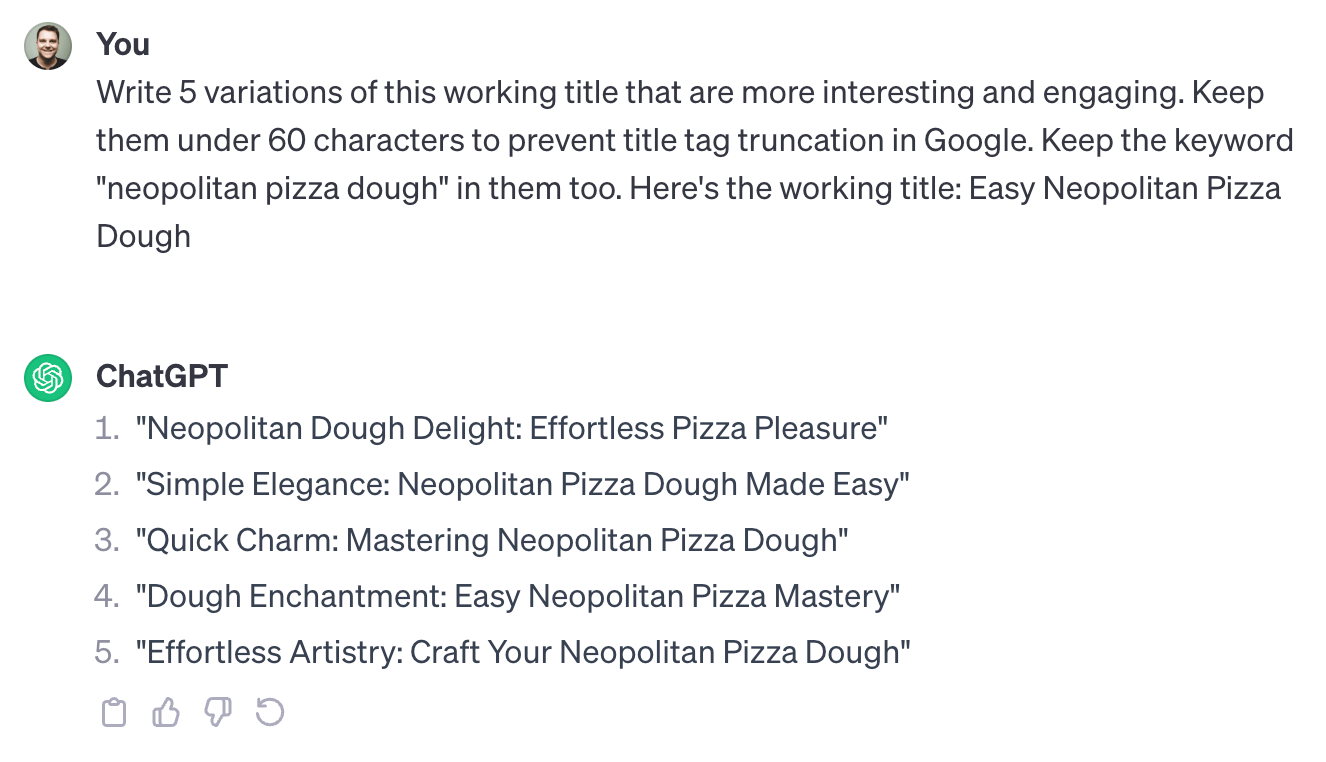

… and writing a meta description:
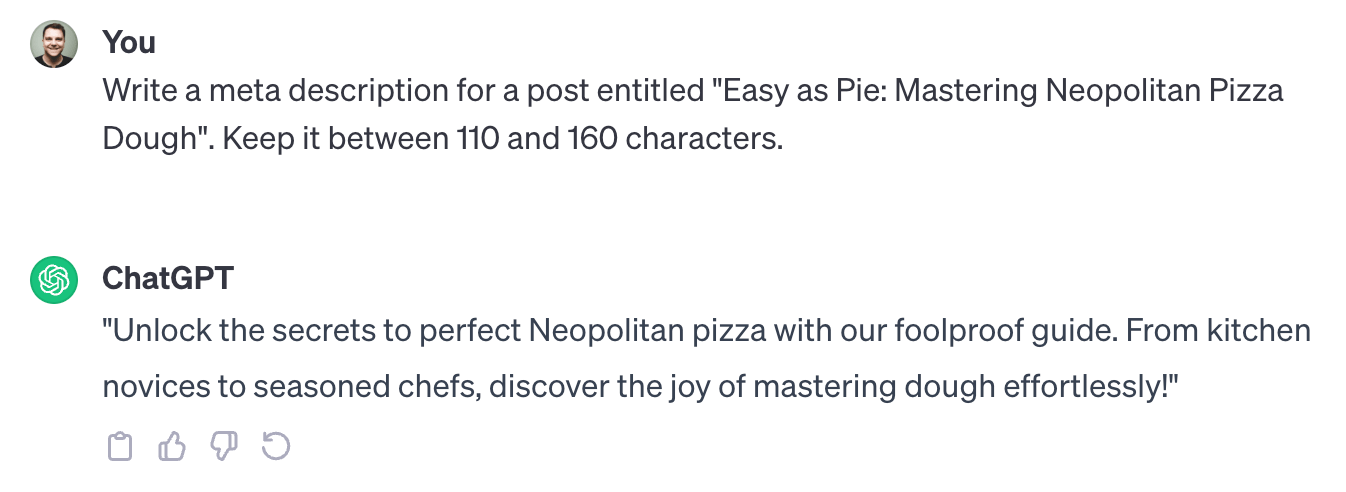

If you notice a few months down the line that your content ranks well but hasn’t won the featured snippet, ChatGPT can help with that, too.
For example, Ahrefs tells us we rank in position 3 for “affiliate marketing” but don’t own the snippet.
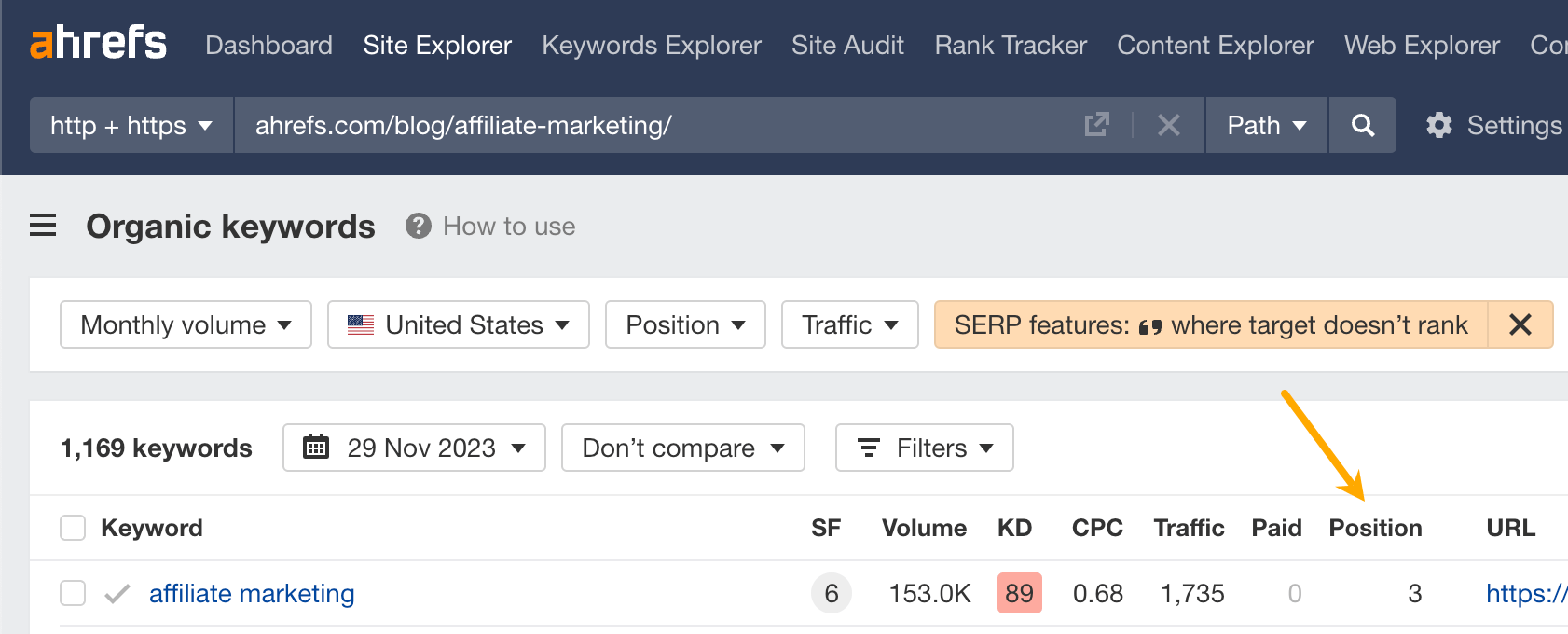

If we check Google, the snippet is a definition. Asking ChatGPT to simplify our definition may solve this problem.
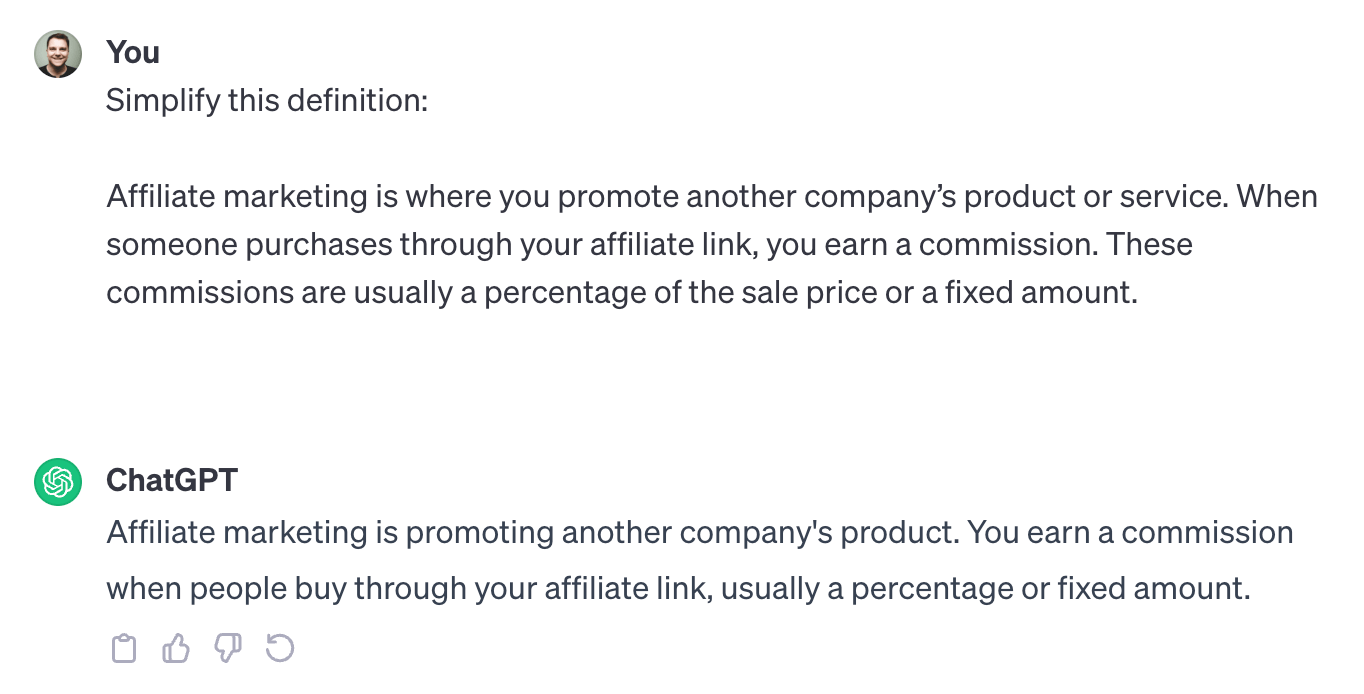

In short, there are a near-infinite number of ways to use ChatGPT (and other AI writing tools) to create better content. And all of them buck the trend of asking it to write boring, boilerplate articles from scratch.
Programmatic SEO refers to the creation of keyword-targeted pages in an automatic (or near automatic) way.
Nomadlist’s location pages are a perfect example:
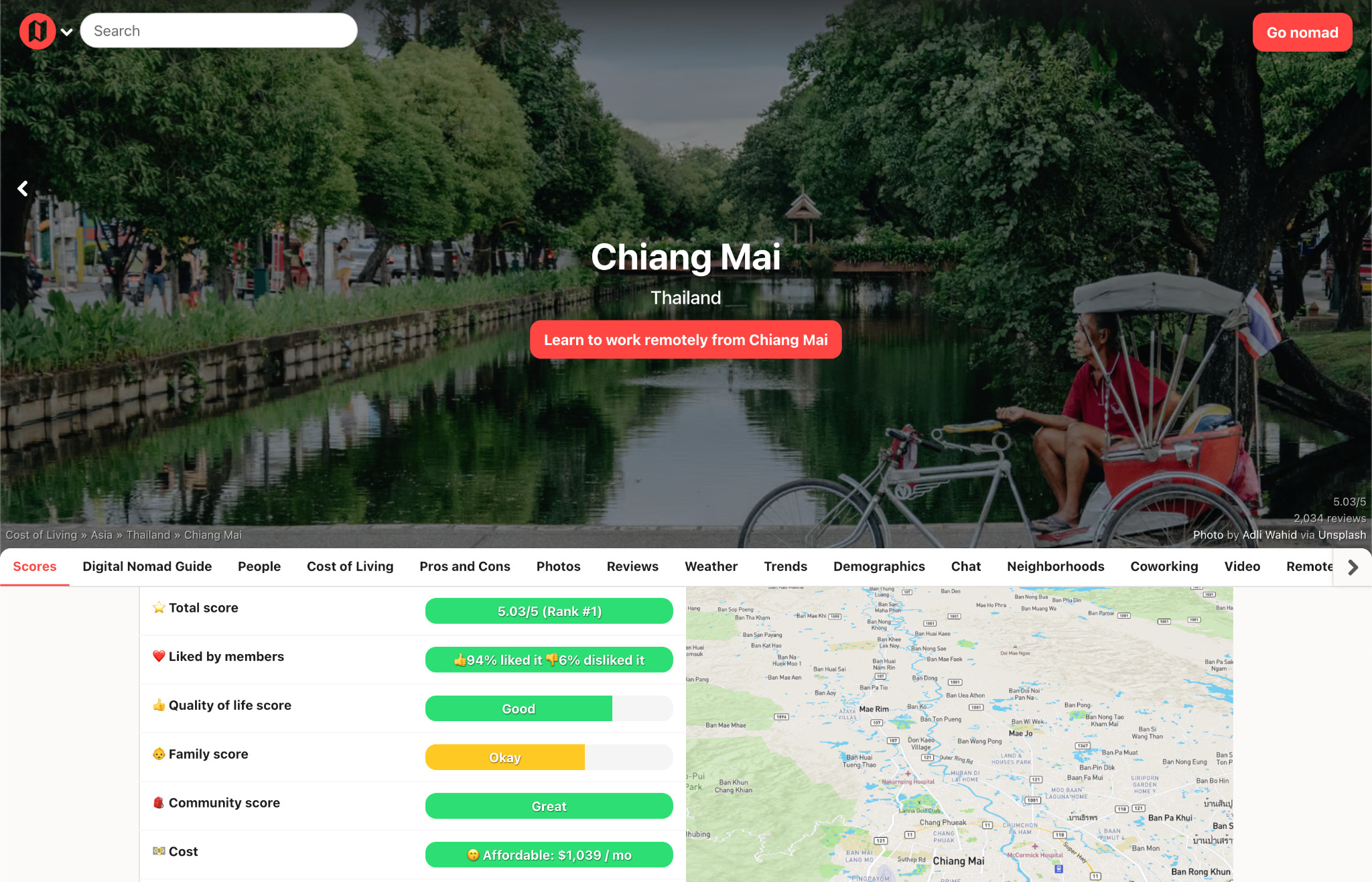

Each page focuses on a specific city and shares the same core information—internet speeds, cost, temperature, etc. All of this information is pulled programmatically from a database and the site gets an estimated 46k monthly search visits in total.
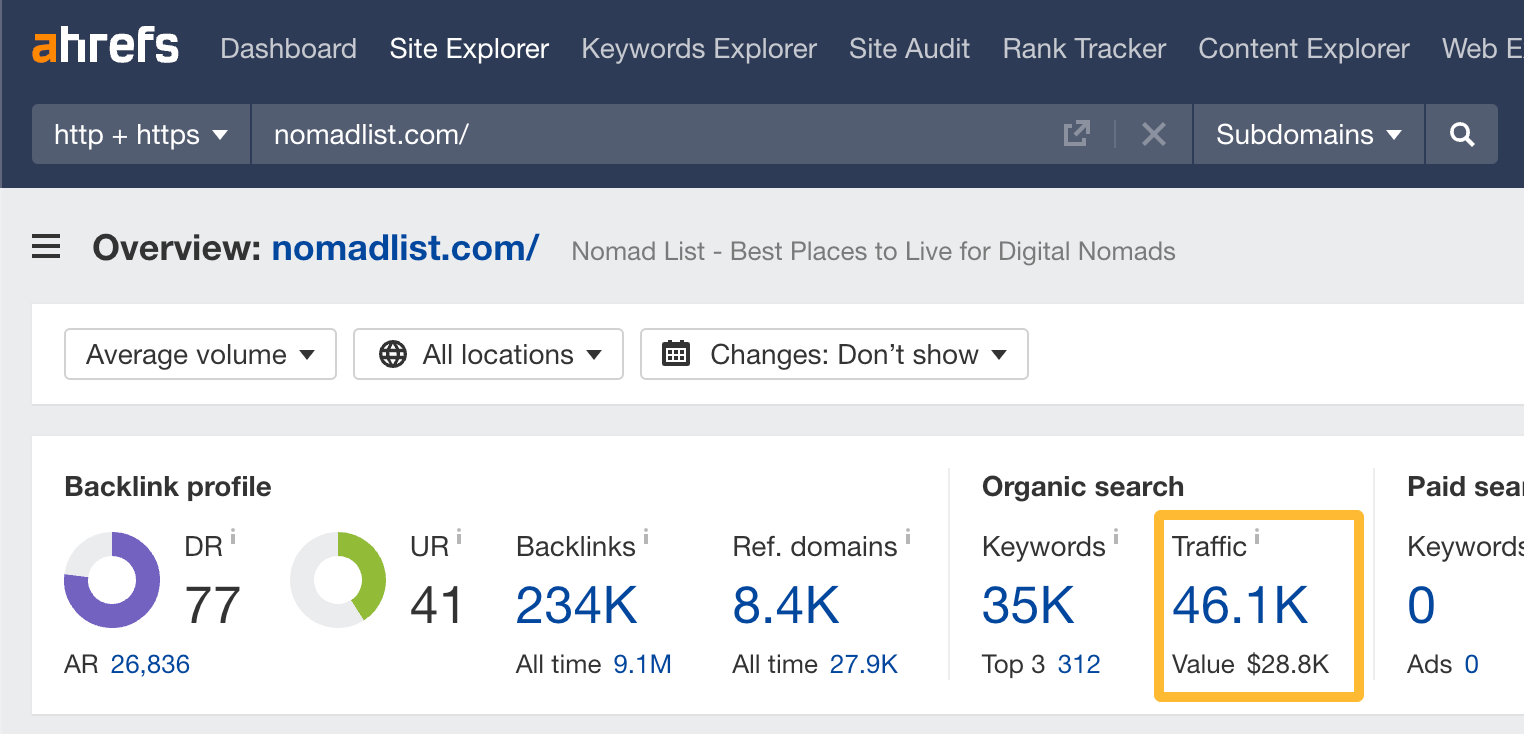

Programmatic SEO is nothing new. It’s been around forever. It’s just the hot thing right now because AI tools like ChatGPT make it easier and more accessible than ever before.
The problem? As John Mueller pointed out on Twitter X, much of it is spam:
I love fire, but also programmatic SEO is often a fancy banner for spam.
— I am John – ⭐ Say no to cookies – biscuits only ⭐ (@JohnMu) July 25, 2023
How to take advantage of this SEO trend
Don’t use programmatic SEO to publish insane amounts of spam that’ll probably get hit in the next Google update. Use it to scale valuable content that will stand the test of time.
For example, Wise’s currency conversion pages currently get an estimated 31.7M monthly search visits:
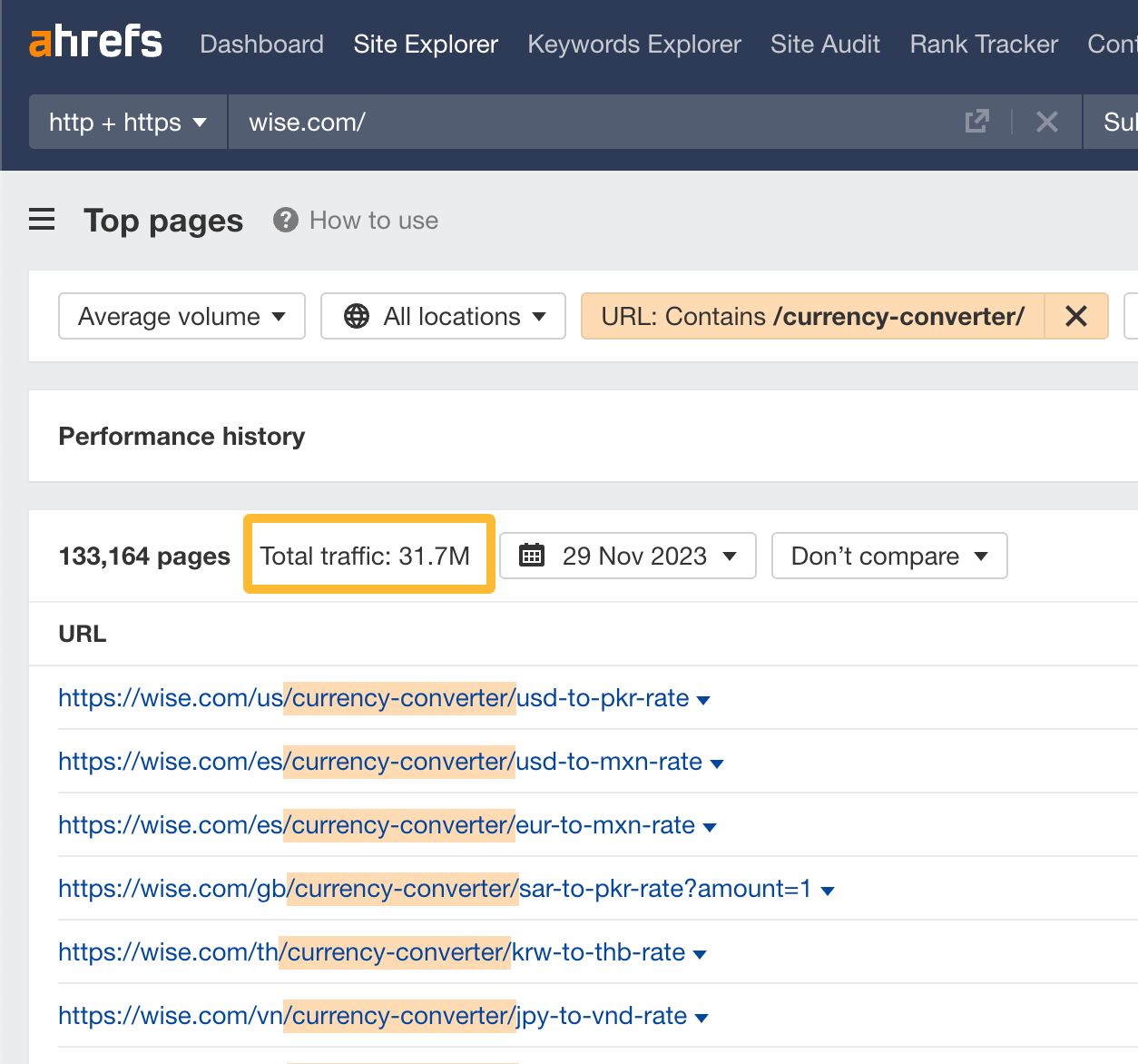

This is because the content is actually useful. Each page features an interactive tool showing the live exchange rate for any amount…
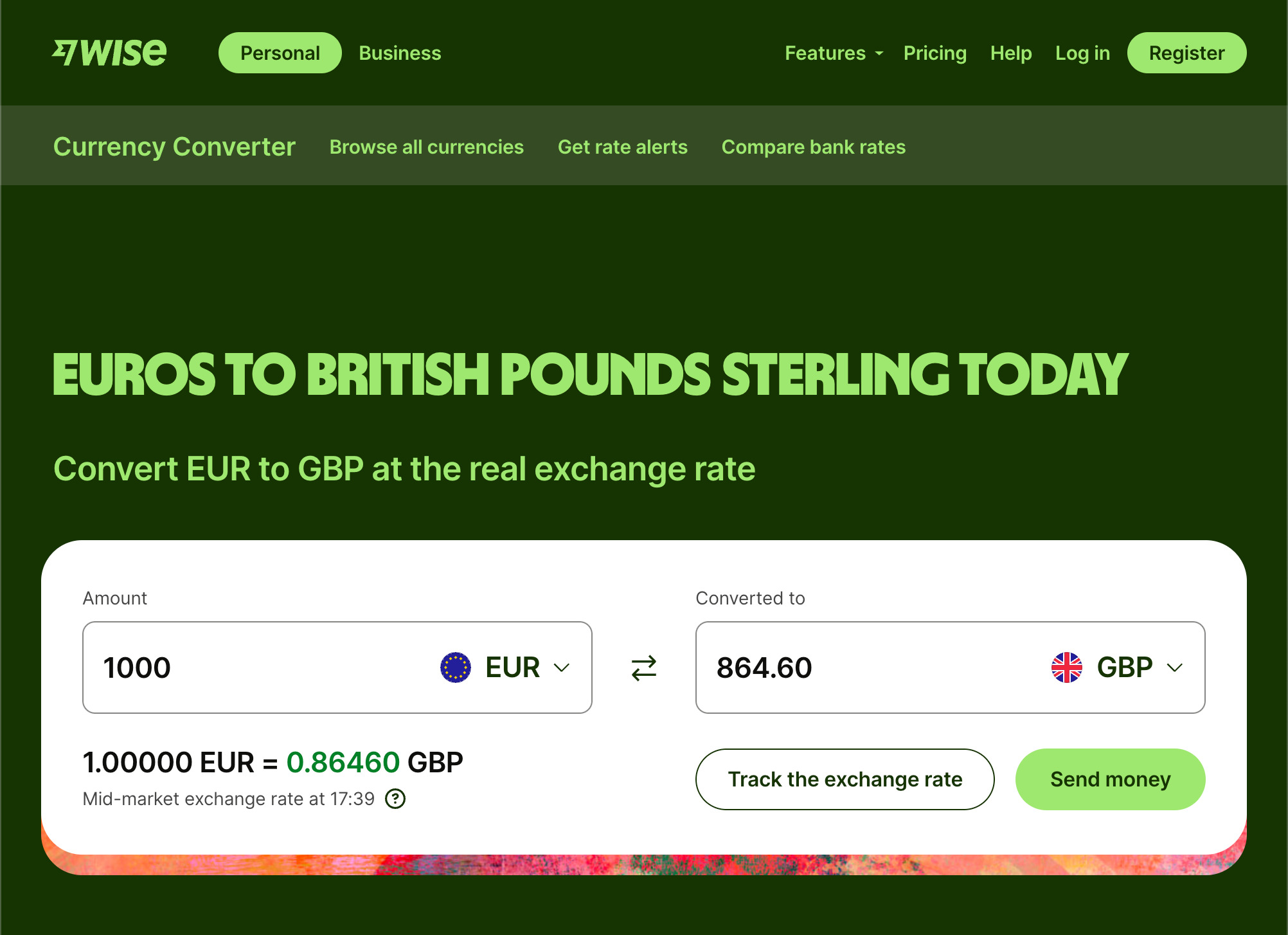

… the exchange rate over time…
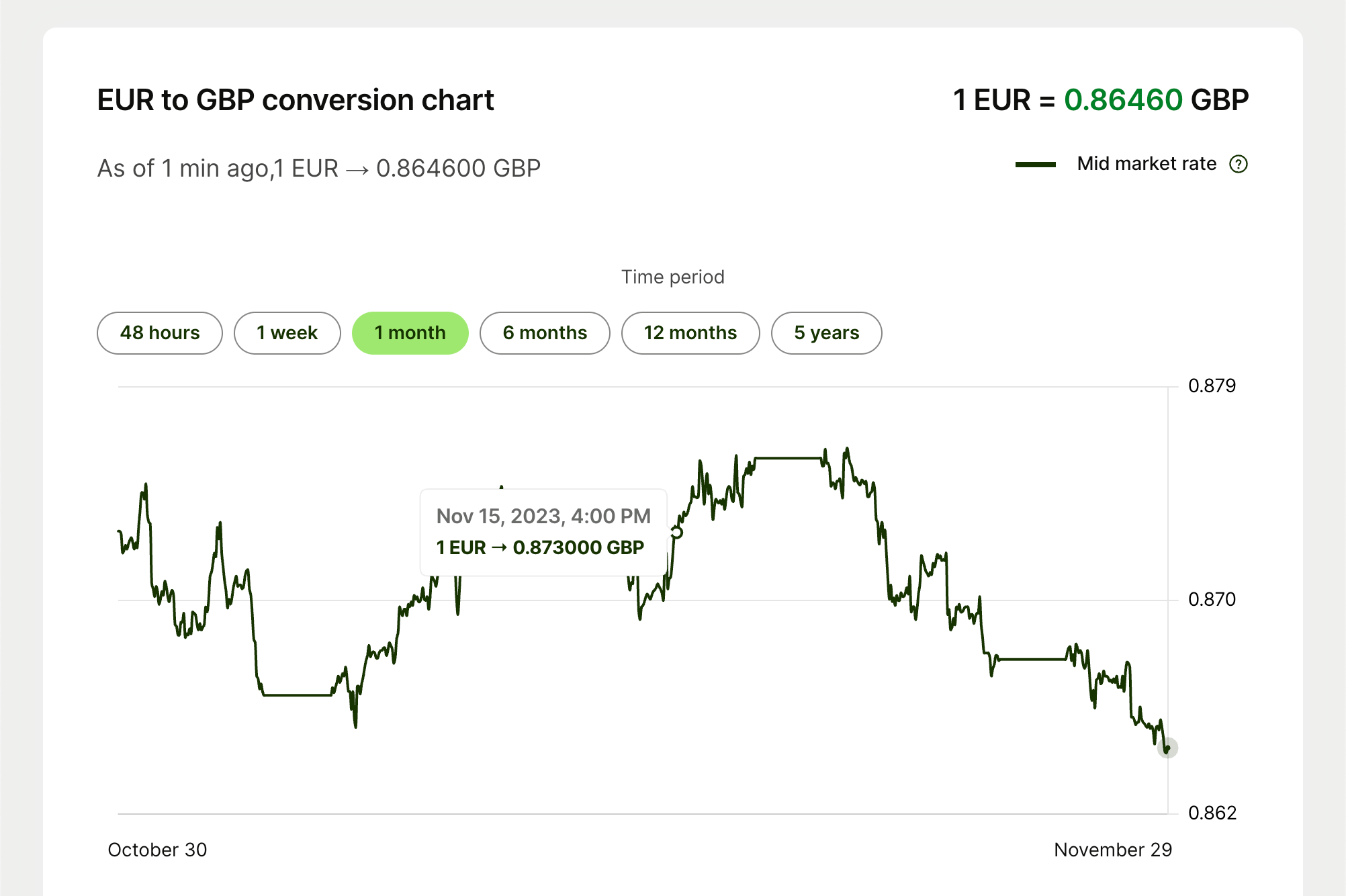

… a handy email notification option when the exchange rates exceed a certain amount…
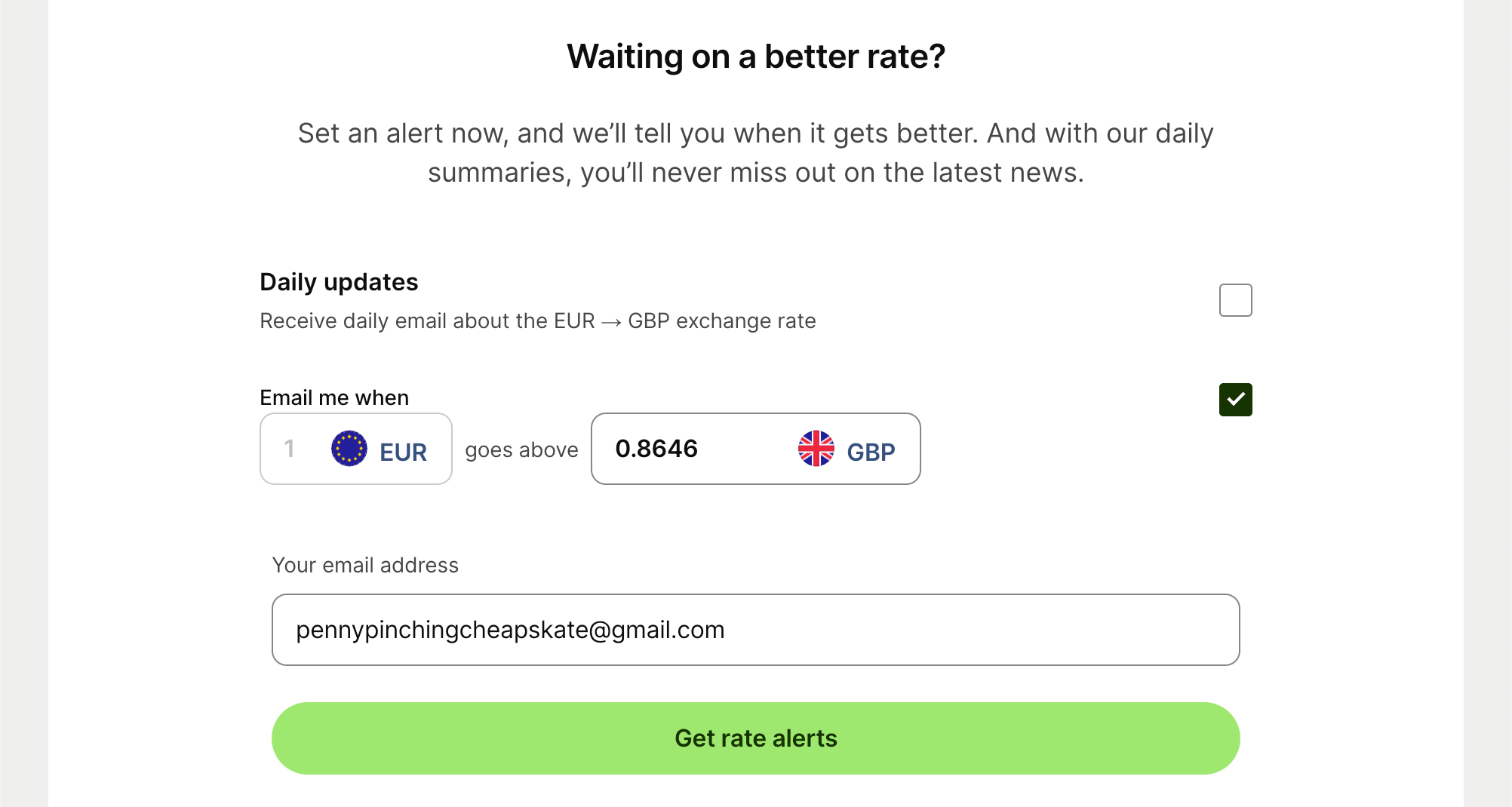

… handy conversion charts for popular amounts…
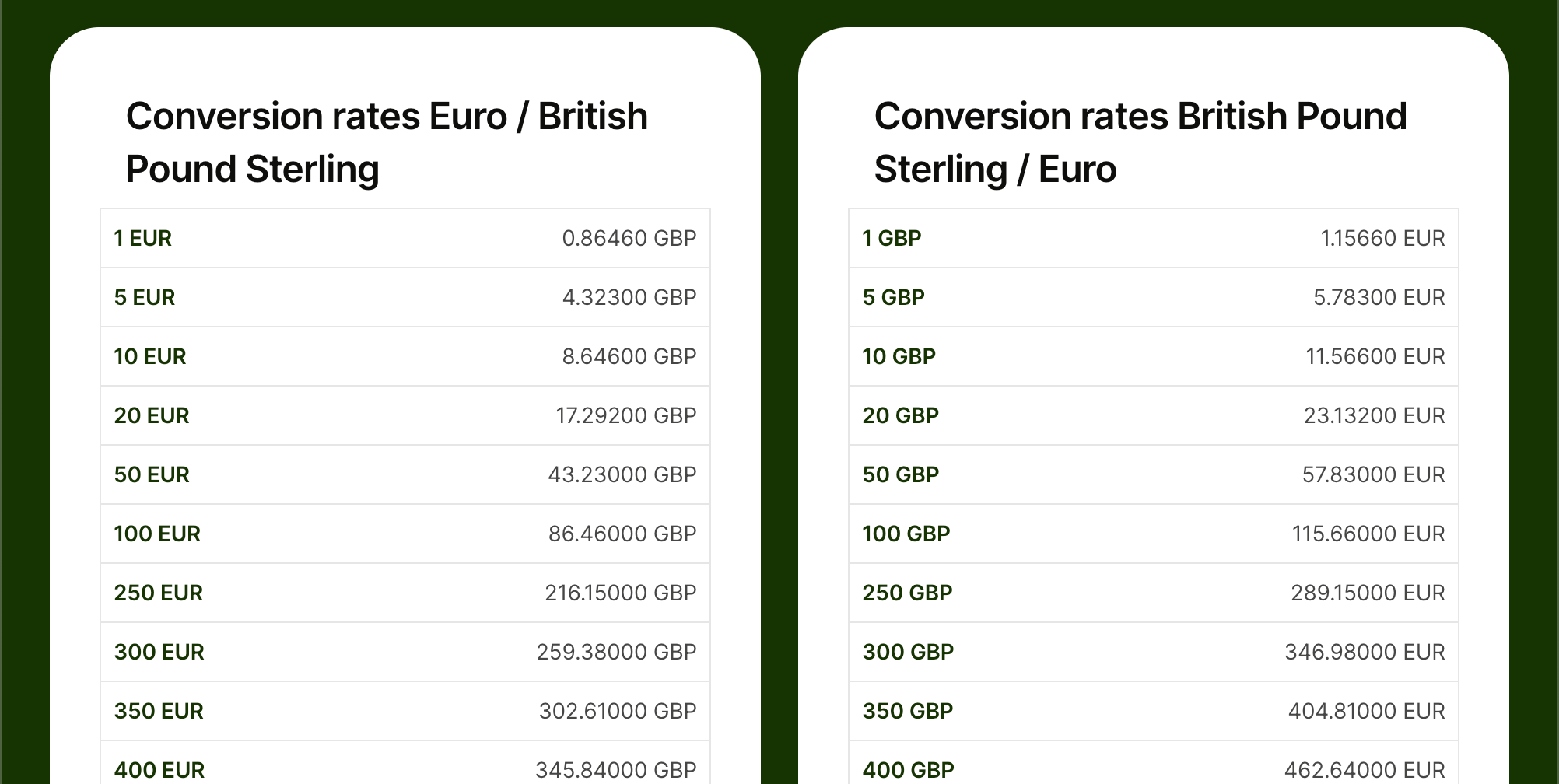

… and a comparison of the cheapest ways to send money abroad in your chosen currency:


It doesn’t matter that all of these pages use the same template. The data is exactly what you want to see when you search [currency 1] to [currency 2].
That’s probably why Wise ranks in the top 10 for over 66,000 of these keywords:
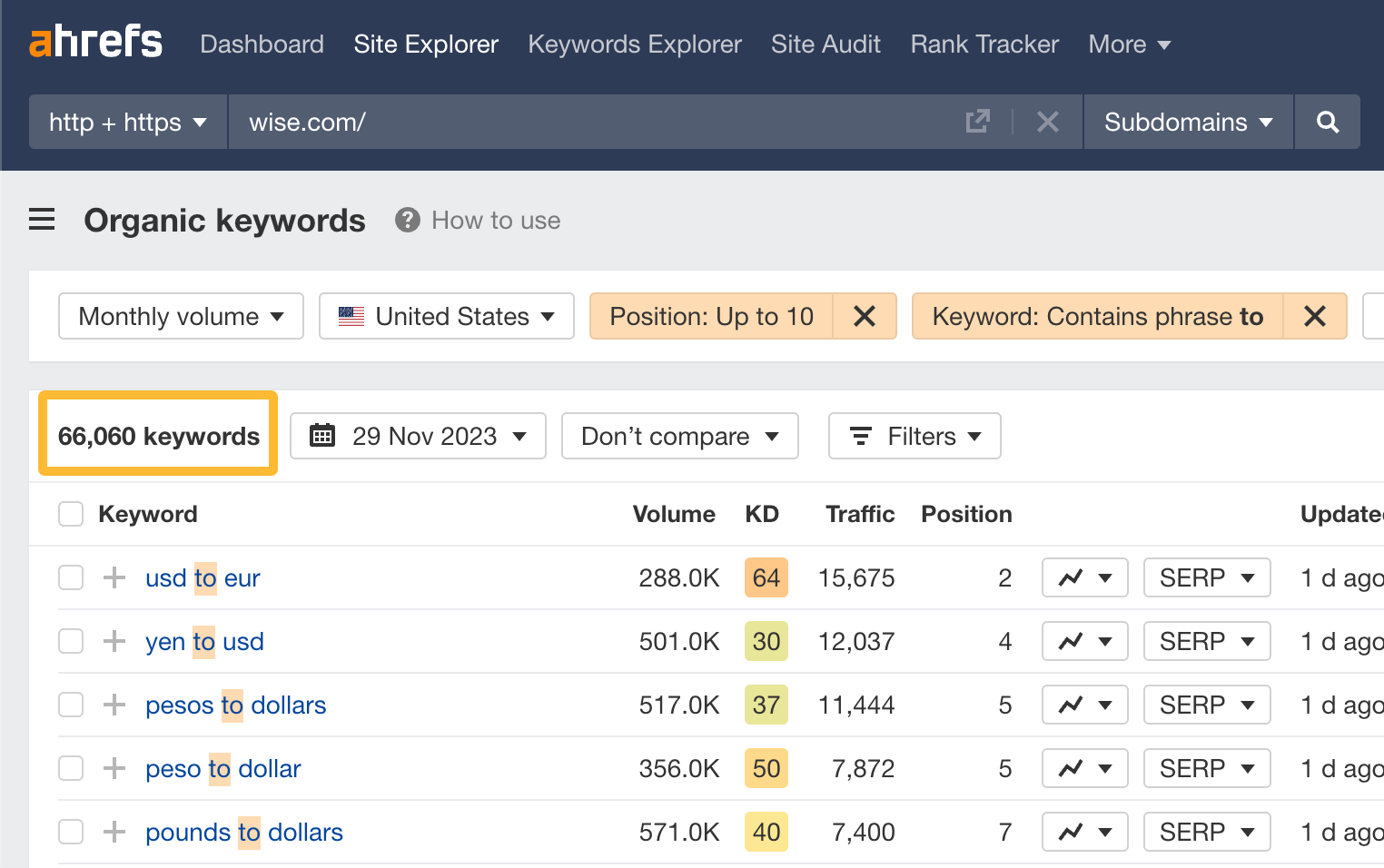

Looking to take advantage of programmatic content in 2024 like Wise? Check out the guide below.
People love ChatGPT because it answers questions fast and succinctly, so it’s no surprise that generative AI is already making its way into search.
For example, if you ask Bing for a definition or how to do something basic, AI will generate an answer on the fly right there in the search results.
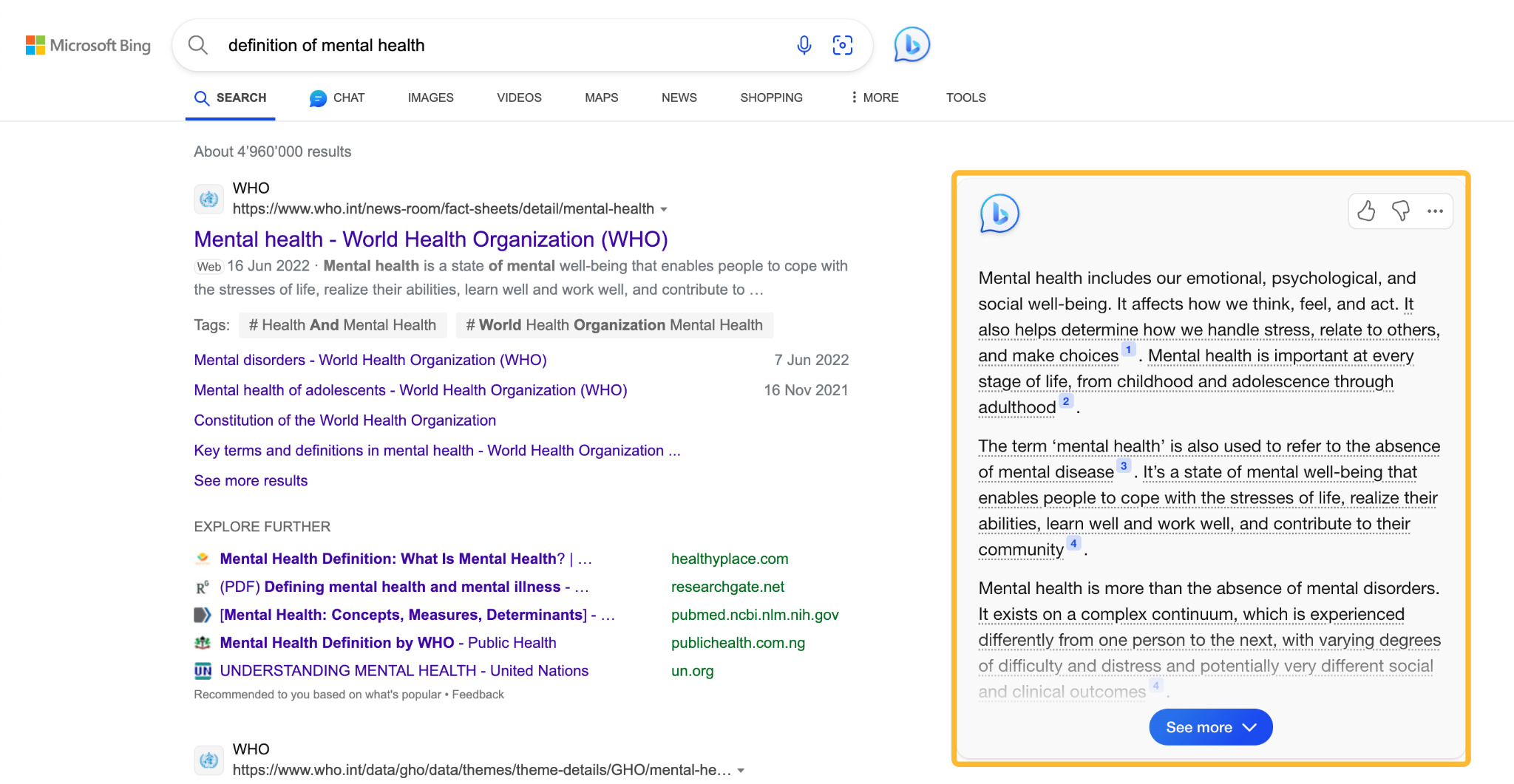

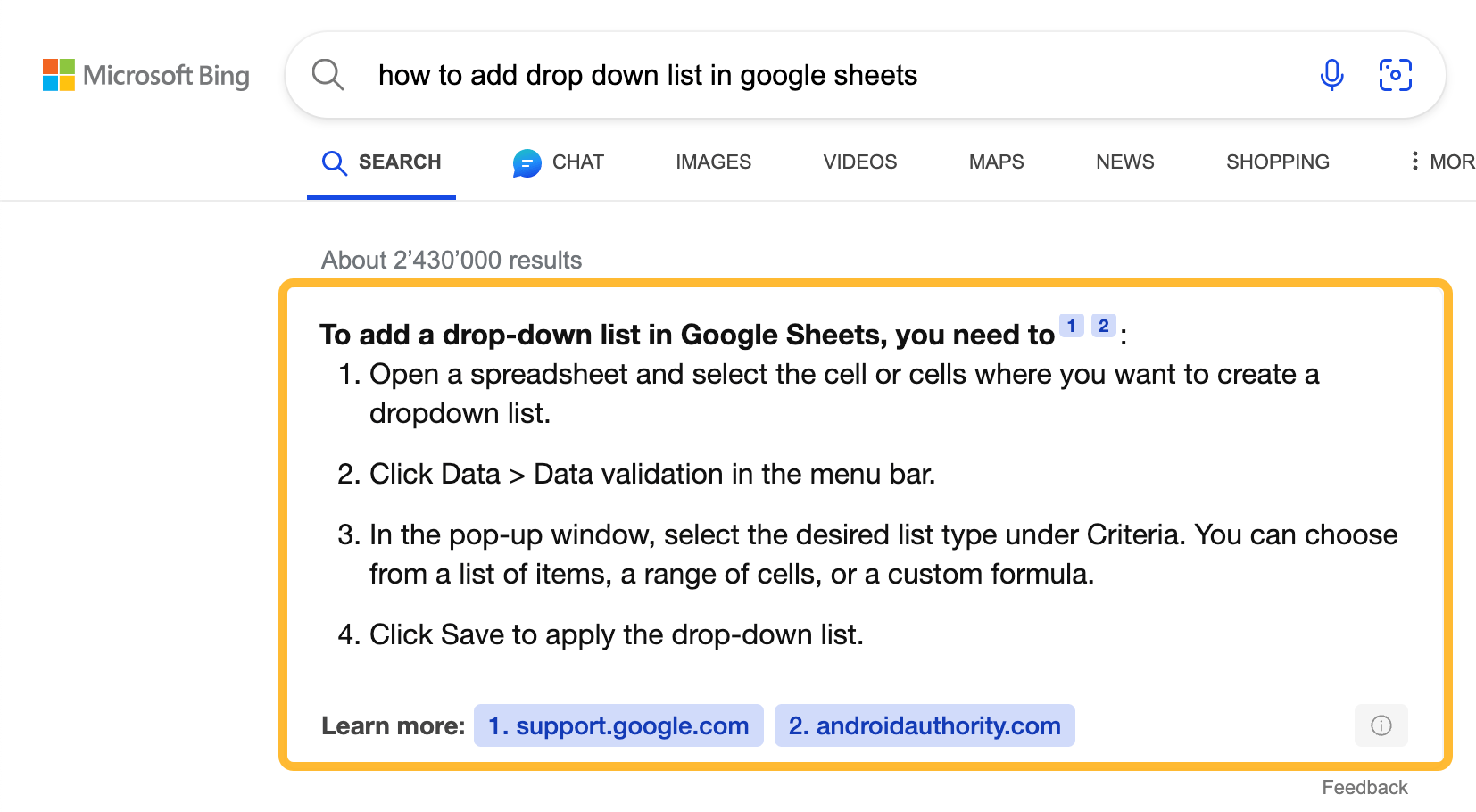

In other words, thanks to AI, users no longer have to click on a search result for answers to simple questions. It’s like featured snippets on steroids.
This might not be a huge deal right now, but when Google’s version of this (Search Generative Experience) comes out of beta, many websites will see clicks fall off a cliff.
How to take advantage of this SEO trend
Don’t invest too much in topics that generative AI can easily answer. You’ll only lose clicks like crazy to AI in the long run. Instead, start prioritizing topics that AI will struggle to answer.
How do you know which topics it will struggle to answer? Try asking ChatGPT. If it gives a good and concise answer, it’s clearly an easy question.
For example, there are hundreds of searches for how to calculate a percentage in Google Sheets every month in the US:
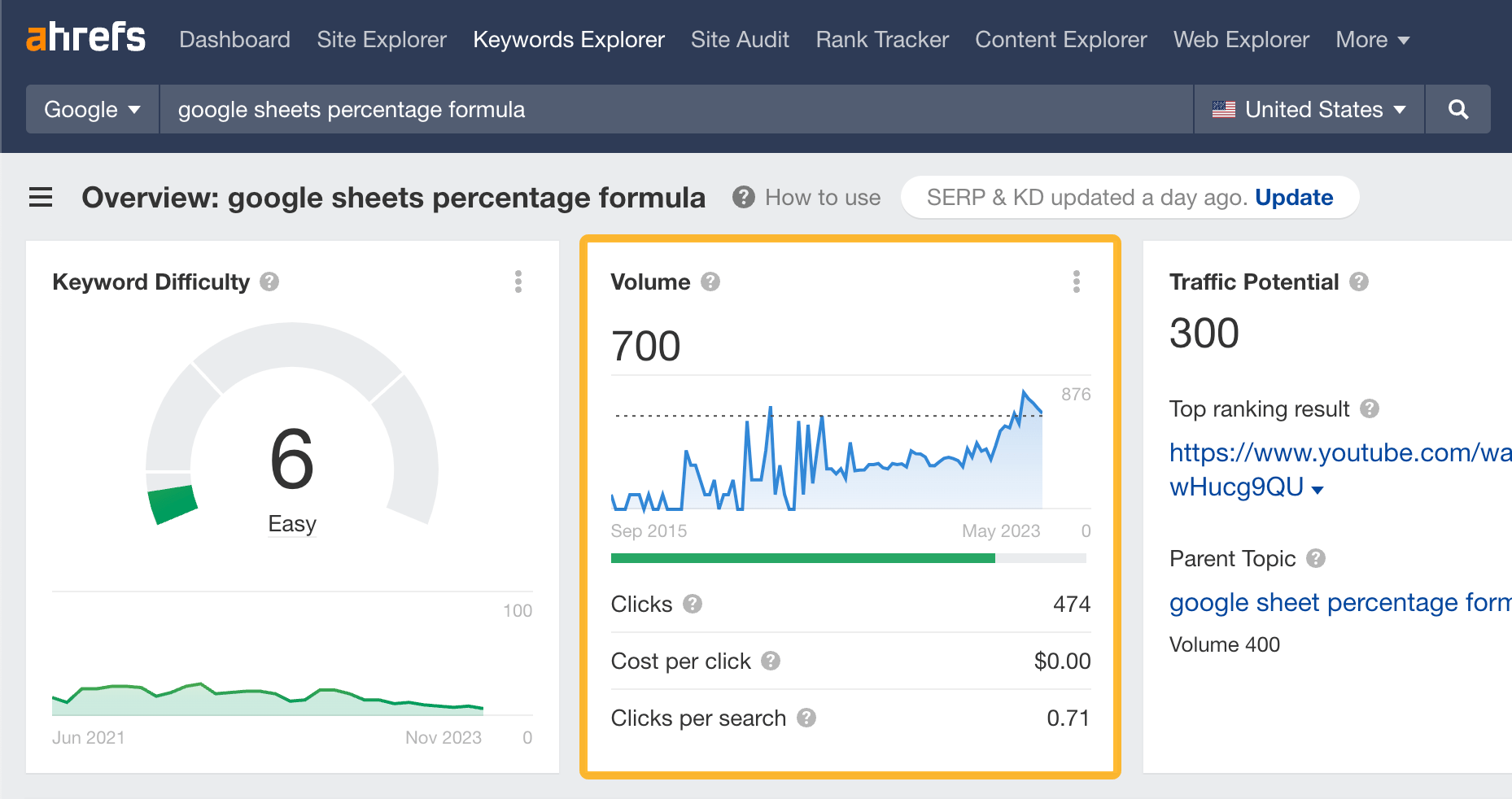

If you ask ChatGPT for the solution, it gives you a perfect answer in about fifty words.
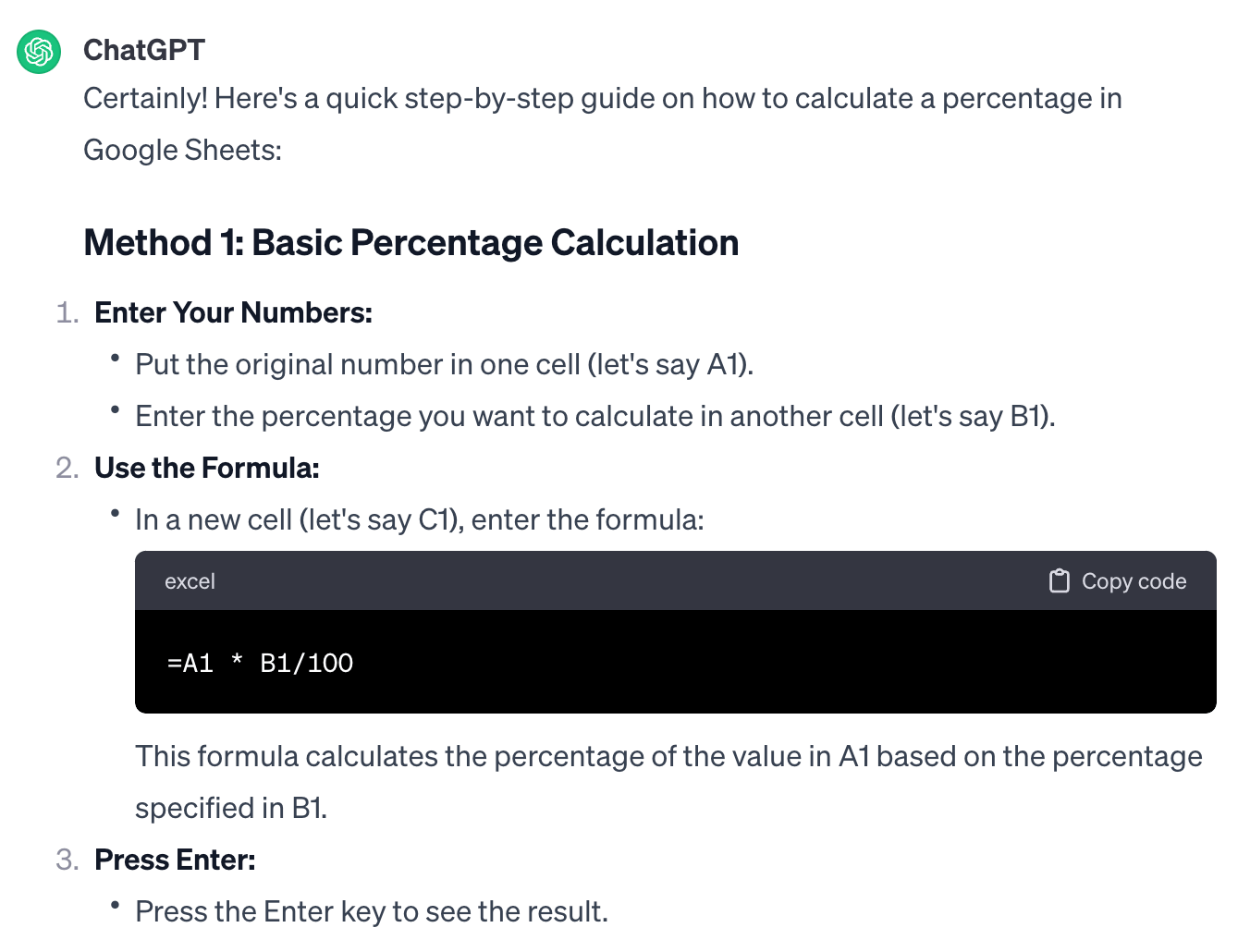

This is the perfect example of a topic where generative AI will remove the need to click on a search result for many.
That’s probably not going to be the case for a topic like this:
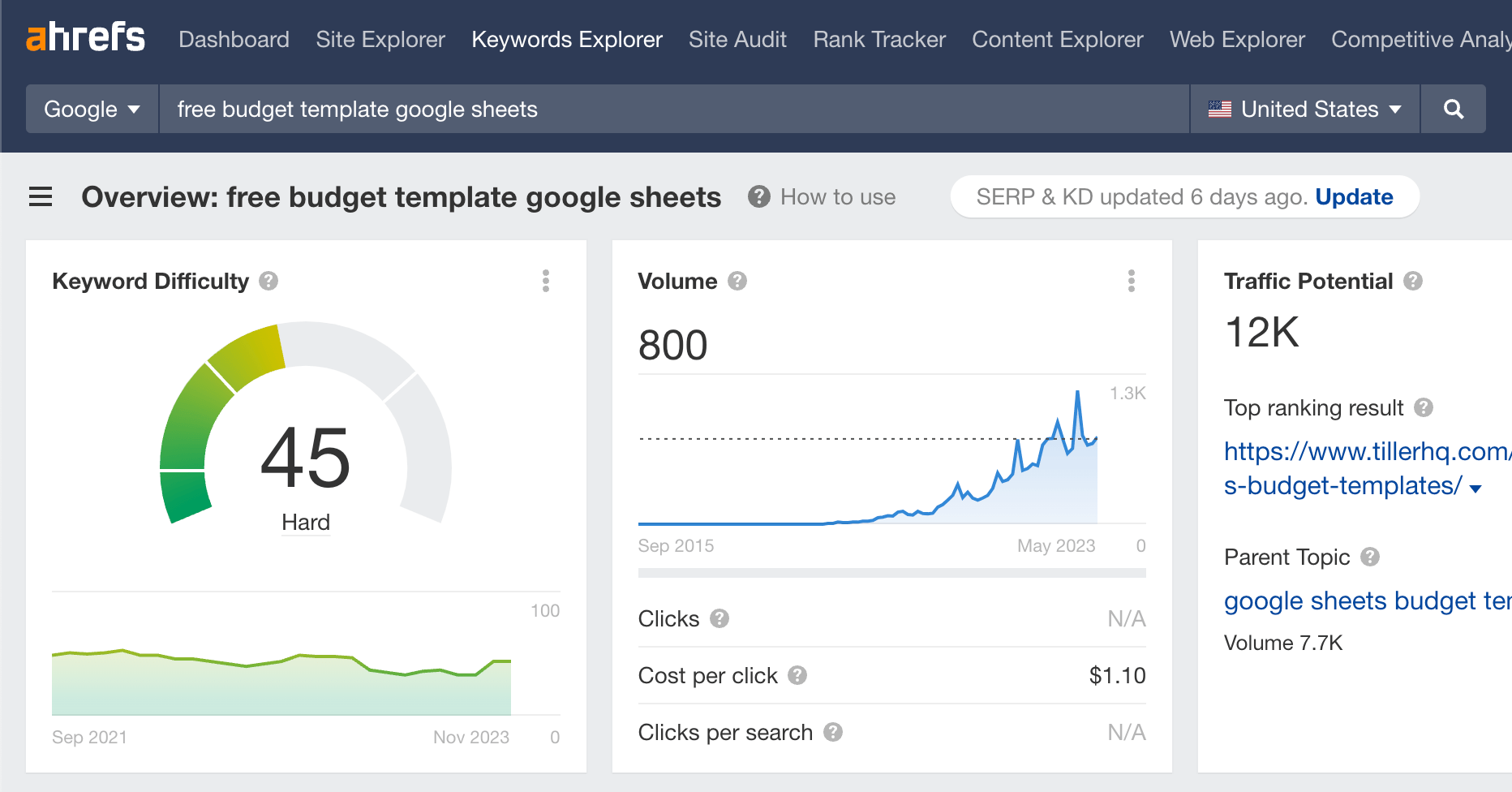

Sure. Generative AI might be able to tell you how to create a template—but it can’t make one for you. And even if it can in the future, it will never be a personal finance expert with experience. You’ll always have to click on a search result for a template created by that person.
These are the kinds of topics to prioritize in 2024 and beyond.
Sidenote.
None of this means you should stop targeting “simple” topics altogether. You’ll always be able to get some traffic from them. My point is not to be obsessed with ranking for keywords whose days are numbered. Prioritize topics with long-term value instead.
Bonus: 3 SEO trends to ignore in 2024
Not all SEO trends move the needle. Here are just a few of those trends and why you should ignore them.
People are using voice search more than ever
In 2014, Google revealed that 41% of Americans use voice search daily. According to research by UpCity, that number was up to 50% as of 2022. I haven’t seen any data for 2023 yet, but I’d imagine it’s above 50%.
Why you should ignore this SEO trend
75% of voice search results come from a page ranking in the top 3, and 40.7% come from a featured snippet. If you’re already optimizing for those things, there’s not much more you can do.
People are using visual search for shopping more than ever
In 2022, Insider Intelligence reported that 22% of US adults have shopped with visual search (Google Lens, Bing Visual Search, etc.). That number is up from just 15% in 2021.
Why you should ignore this SEO trend
Much like voice search, there’s no real way to optimize for visual search. Sure, it helps to have good quality product images, optimized filenames and alt text, and product schema markup on your pages—but you should be doing this stuff anyway as it’s been a best practice since forever.
People are using Bing more than ever before
Bing’s Yusuf Mehdi announced in March 2023 that the search engine had surpassed 100M daily active users for the first time ever. This came just one month after the launch of AI-powered Bing.
Why you should ignore this SEO trend
Bing might be more popular than ever, but its market share still only stands at around ~3% according to estimates by Statcounter. Google’s market share stands at roughly 92%, so that’s the one you should be optimizing for.
Plus, it’s often the case that if you rank in Google, you also rank in Bing—so it really doesn’t deserve any focus.
Final thoughts
Keeping your finger on the pulse and taking advantage of trends makes sense, but don’t let them distract you from the boring stuff that’s always worked: find what people are searching for > create content about it > build backlinks > repeat.
Got questions? Ping me on Twitter X.
SEO
Google March 2024 Core Update Officially Completed A Week Ago
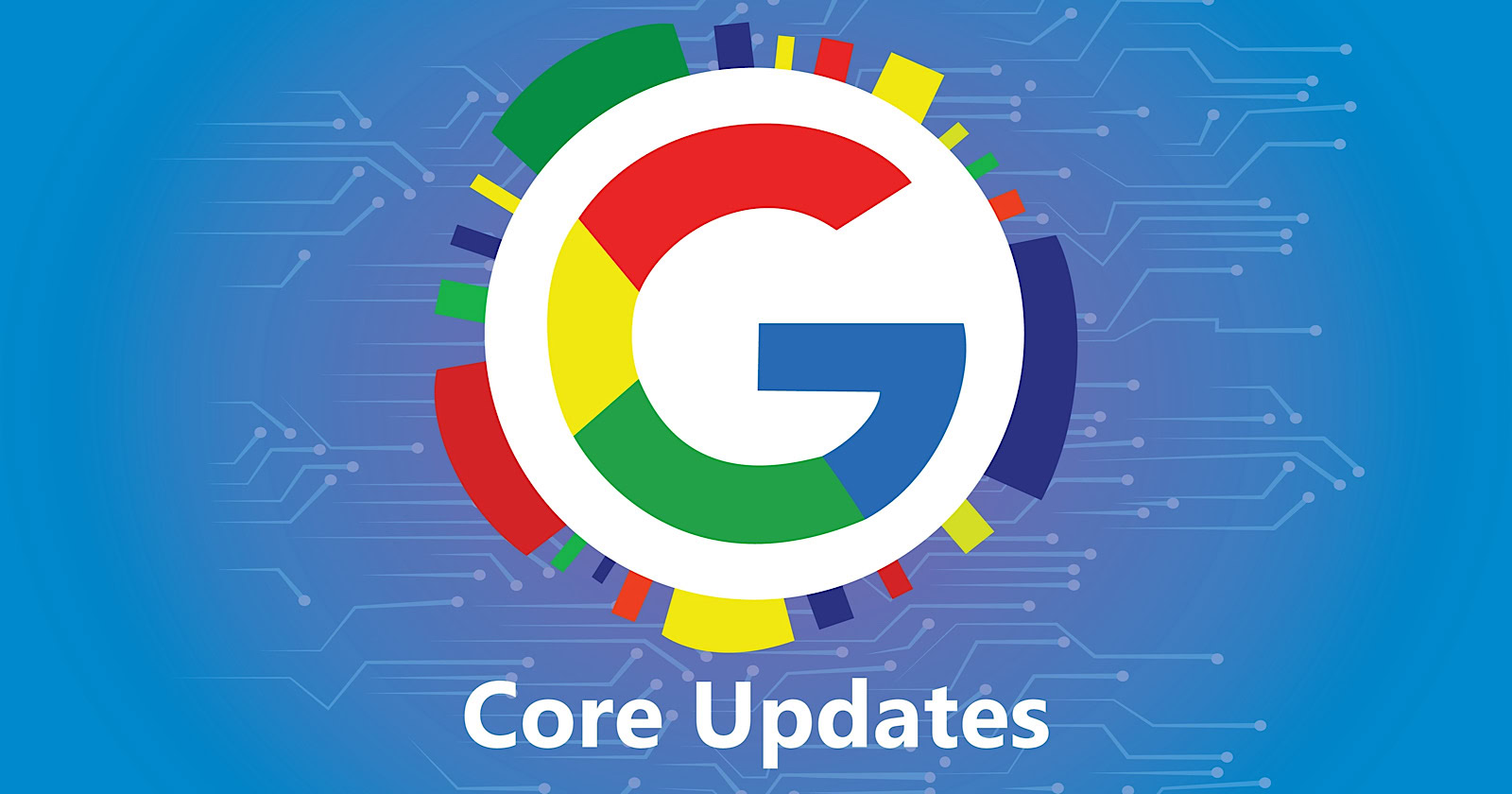
Google has officially completed its March 2024 Core Update, ending over a month of ranking volatility across the web.
However, Google didn’t confirm the rollout’s conclusion on its data anomaly page until April 26—a whole week after the update was completed on April 19.
Many in the SEO community had been speculating for days about whether the turbulent update had wrapped up.
The delayed transparency exemplifies Google’s communication issues with publishers and the need for clarity during core updates
Google March 2024 Core Update Timeline & Status
First announced on March 5, the core algorithm update is complete as of April 19. It took 45 days to complete.
Unlike more routine core refreshes, Google warned this one was more complex.
Google’s documentation reads:
“As this is a complex update, the rollout may take up to a month. It’s likely there will be more fluctuations in rankings than with a regular core update, as different systems get fully updated and reinforce each other.”
The aftershocks were tangible, with some websites reporting losses of over 60% of their organic search traffic, according to data from industry observers.
The ripple effects also led to the deindexing of hundreds of sites that were allegedly violating Google’s guidelines.
Addressing Manipulation Attempts
In its official guidance, Google highlighted the criteria it looks for when targeting link spam and manipulation attempts:
- Creating “low-value content” purely to garner manipulative links and inflate rankings.
- Links intended to boost sites’ rankings artificially, including manipulative outgoing links.
- The “repurposing” of expired domains with radically different content to game search visibility.
The updated guidelines warn:
“Any links that are intended to manipulate rankings in Google Search results may be considered link spam. This includes any behavior that manipulates links to your site or outgoing links from your site.”
John Mueller, a Search Advocate at Google, responded to the turbulence by advising publishers not to make rash changes while the core update was ongoing.
However, he suggested sites could proactively fix issues like unnatural paid links.
“If you have noticed things that are worth improving on your site, I’d go ahead and get things done. The idea is not to make changes just for search engines, right? Your users will be happy if you can make things better even if search engines haven’t updated their view of your site yet.”
Emphasizing Quality Over Links
The core update made notable changes to how Google ranks websites.
Most significantly, Google reduced the importance of links in determining a website’s ranking.
In contrast to the description of links as “an important factor in determining relevancy,” Google’s updated spam policies stripped away the “important” designation, simply calling links “a factor.”
This change aligns with Google’s Gary Illyes’ statements that links aren’t among the top three most influential ranking signals.
Instead, Google is giving more weight to quality, credibility, and substantive content.
Consequently, long-running campaigns favoring low-quality link acquisition and keyword optimizations have been demoted.
With the update complete, SEOs and publishers are left to audit their strategies and websites to ensure alignment with Google’s new perspective on ranking.
Core Update Feedback
Google has opened a ranking feedback form related to this core update.
You can use this form until May 31 to provide feedback to Google’s Search team about any issues noticed after the core update.
While the feedback provided won’t be used to make changes for specific queries or websites, Google says it may help inform general improvements to its search ranking systems for future updates.
Google also updated its help documentation on “Debugging drops in Google Search traffic” to help people understand ranking changes after a core update.
Featured Image: Rohit-Tripathi/Shutterstock
FAQ
After the update, what steps should websites take to align with Google’s new ranking criteria?
After Google’s March 2024 Core Update, websites should:
- Improve the quality, trustworthiness, and depth of their website content.
- Stop heavily focusing on getting as many links as possible and prioritize relevant, high-quality links instead.
- Fix any shady or spam-like SEO tactics on their sites.
- Carefully review their SEO strategies to ensure they follow Google’s new guidelines.
SEO
Google Declares It The “Gemini Era” As Revenue Grows 15%

Alphabet Inc., Google’s parent company, announced its first quarter 2024 financial results today.
While Google reported double-digit growth in key revenue areas, the focus was on its AI developments, dubbed the “Gemini era” by CEO Sundar Pichai.
The Numbers: 15% Revenue Growth, Operating Margins Expand
Alphabet reported Q1 revenues of $80.5 billion, a 15% increase year-over-year, exceeding Wall Street’s projections.
Net income was $23.7 billion, with diluted earnings per share of $1.89. Operating margins expanded to 32%, up from 25% in the prior year.
Ruth Porat, Alphabet’s President and CFO, stated:
“Our strong financial results reflect revenue strength across the company and ongoing efforts to durably reengineer our cost base.”
Google’s core advertising units, such as Search and YouTube, drove growth. Google advertising revenues hit $61.7 billion for the quarter.
The Cloud division also maintained momentum, with revenues of $9.6 billion, up 28% year-over-year.
Pichai highlighted that YouTube and Cloud are expected to exit 2024 at a combined $100 billion annual revenue run rate.
Generative AI Integration in Search
Google experimented with AI-powered features in Search Labs before recently introducing AI overviews into the main search results page.
Regarding the gradual rollout, Pichai states:
“We are being measured in how we do this, focusing on areas where gen AI can improve the Search experience, while also prioritizing traffic to websites and merchants.”
Pichai reports that Google’s generative AI features have answered over a billion queries already:
“We’ve already served billions of queries with our generative AI features. It’s enabling people to access new information, to ask questions in new ways, and to ask more complex questions.”
Google reports increased Search usage and user satisfaction among those interacting with the new AI overview results.
The company also highlighted its “Circle to Search” feature on Android, which allows users to circle objects on their screen or in videos to get instant AI-powered answers via Google Lens.
Reorganizing For The “Gemini Era”
As part of the AI roadmap, Alphabet is consolidating all teams building AI models under the Google DeepMind umbrella.
Pichai revealed that, through hardware and software improvements, the company has reduced machine costs associated with its generative AI search results by 80% over the past year.
He states:
“Our data centers are some of the most high-performing, secure, reliable and efficient in the world. We’ve developed new AI models and algorithms that are more than one hundred times more efficient than they were 18 months ago.
How Will Google Make Money With AI?
Alphabet sees opportunities to monetize AI through its advertising products, Cloud offerings, and subscription services.
Google is integrating Gemini into ad products like Performance Max. The company’s Cloud division is bringing “the best of Google AI” to enterprise customers worldwide.
Google One, the company’s subscription service, surpassed 100 million paid subscribers in Q1 and introduced a new premium plan featuring advanced generative AI capabilities powered by Gemini models.
Future Outlook
Pichai outlined six key advantages positioning Alphabet to lead the “next wave of AI innovation”:
- Research leadership in AI breakthroughs like the multimodal Gemini model
- Robust AI infrastructure and custom TPU chips
- Integrating generative AI into Search to enhance the user experience
- A global product footprint reaching billions
- Streamlined teams and improved execution velocity
- Multiple revenue streams to monetize AI through advertising and cloud
With upcoming events like Google I/O and Google Marketing Live, the company is expected to share further updates on its AI initiatives and product roadmap.
Featured Image: Sergei Elagin/Shutterstock
SEO
brightonSEO Live Blog

Hello everyone. It’s April again, so I’m back in Brighton for another two days of Being the introvert I am, my idea of fun isn’t hanging around our booth all day explaining we’ve run out of t-shirts (seriously, you need to be fast if you want swag!). So I decided to do something useful and live-blog the event instead.
Follow below for talk takeaways and (very) mildly humorous commentary. sun, sea, and SEO!
-
SEARCHENGINES7 days ago
Daily Search Forum Recap: April 19, 2024
-

 MARKETING7 days ago
MARKETING7 days agoBattling for Attention in the 2024 Election Year Media Frenzy
-

 WORDPRESS7 days ago
WORDPRESS7 days ago7 Best WooCommerce Points and Rewards Plugins (Free & Paid)
-

 WORDPRESS6 days ago
WORDPRESS6 days ago13 Best HubSpot Alternatives for 2024 (Free + Paid)
-

 MARKETING6 days ago
MARKETING6 days agoAdvertising in local markets: A playbook for success
-

 SEO7 days ago
SEO7 days agoGoogle Answers Whether Having Two Sites Affects Rankings
-

 SEARCHENGINES6 days ago
SEARCHENGINES6 days agoGoogle Core Update Flux, AdSense Ad Intent, California Link Tax & More
-

 AFFILIATE MARKETING7 days ago
AFFILIATE MARKETING7 days agoGrab Microsoft Project Professional 2021 for $20 During This Flash Sale




![The Current State of Google’s Search Generative Experience [What It Means for SEO in 2024] person typing on laptop with](https://articles.entireweb.com/wp-content/uploads/2024/04/The-Current-State-of-Googles-Search-Generative-Experience-What-It.webp-400x240.webp)
![The Current State of Google’s Search Generative Experience [What It Means for SEO in 2024] person typing on laptop with](https://articles.entireweb.com/wp-content/uploads/2024/04/The-Current-State-of-Googles-Search-Generative-Experience-What-It.webp-80x80.webp)









